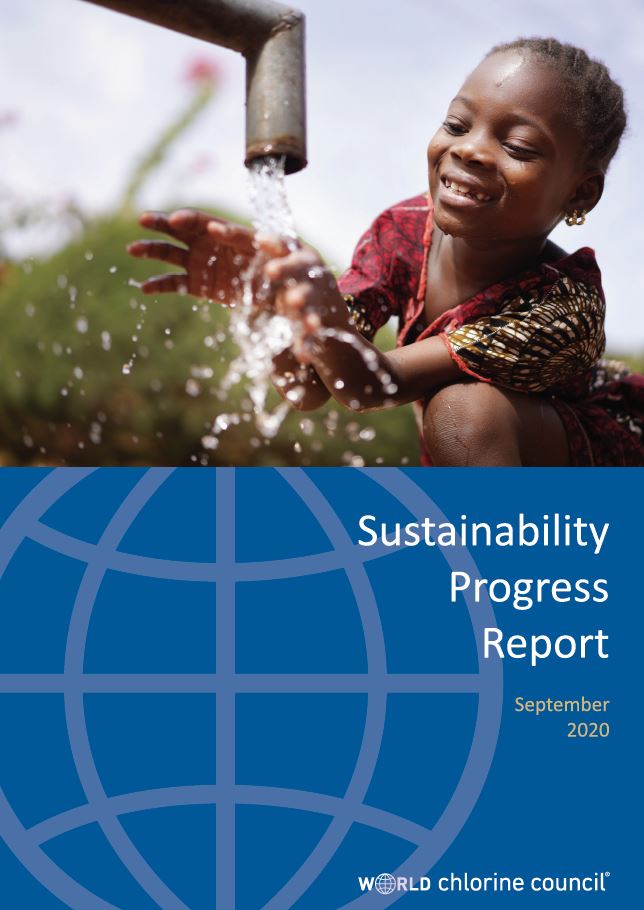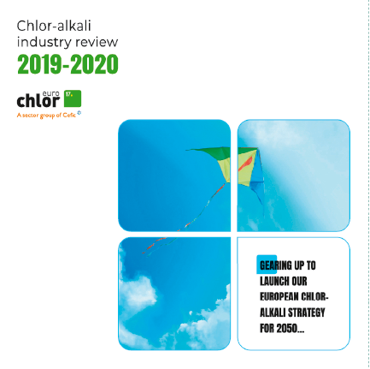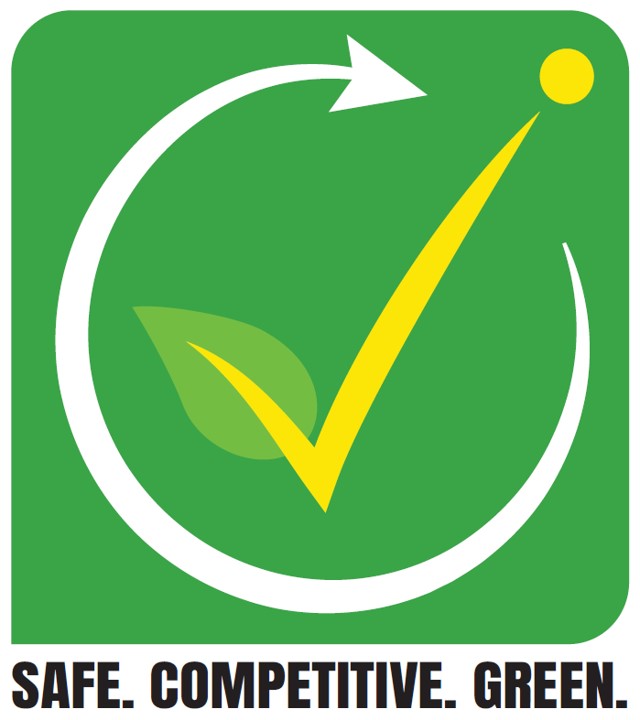Contributions of the Chlor-Alkali and Derivatives Industry to the Sustainable Development Goals (SDGs)
In June 2021, the Brazilian Chlor-Alkali and Derivatives Industry Association (Abiclor), in partnership with the São Paulo State Environmental Company (Cetesb), reinforced its commitment to the Sustainable Development Goals (SDGs), established by the UN, by signing the Protocol of Intentions with the environmental agency. Since then, Abiclor member companies that have agreed to the protocol have actively participated in training courses that have resulted in the identification of five key SDGs, crucial to the sustainability of the sector:
Clean Water and Sanitation (SDG 6)
Affordable and Clean Energy (SDG 7)
Decent Work and Economic Growth (SDG 8)
Sustainable Consumption and Production (SDG 12)
Climate Action (SDG 13)
Currently, the sector’s consenting companies have already achieved 69% adherence to the proposed goals, which clearly demonstrates a tangible commitment to sustainability.
Abiclor recognizes that there is room for opportunity in the process of progress and continuous improvement. Therefore, the association will incorporate initiatives in the coming years to further boost sustainability throughout the production chain.
In addition, Abiclor has scheduled a full agenda of meetings to share best practices and continue advancing on this journey.
Protocol Expansion: By February 2024, a diagnosis was prepared for companies that wish to join the group as signatories.
Group Meetings: Bi-monthly meetings are held to discuss Abiclor’s criteria on the topics identified in the protocol (5 goals), as well as exchange information for joint progress.
Internal Best Practices: Release of bi-monthly newsletters featuring best practices aligned with the target SDGs.
Abiclor reiterates its commitment to sustainability and invites all companies in the chlorine-alkali sector to join this important initiative, contributing to a more sustainable future for all.
Chlorine is essential for maintaining pool and water safety, ensuring our summer activities are safe and enjoyable. When added to pool water, chlorine forms hypochlorous acid, a powerful disinfectant that kills harmful bacteria, viruses, and other microorganisms. It also oxidizes organic contaminants like sweat and body oils, preventing unpleasant odours and cloudy water. Maintaining proper chlorine levels (1-3 ppm) and pH balance (7.2-7.6) is crucial for its effectiveness, while regular testing and occasional shock treatments help keep the water pristine.
Beyond recreational use, chlorine plays a vital role in global water sanitation efforts, contributing significantly to Sustainable Development Goal 6 (SDG 6) for clean water and sanitation. Chlorine is widely used in municipal water treatment facilities worldwide to purify drinking water, making it safe for consumption. This ensures the availability of clean water, essential for health, development, and well-being. Handling chlorine with care and following safety guidelines ensures its powerful benefits are maximized safely, supporting both personal and public health. Want to learn more? Visit Chemical Safety Facts for more information.
Brazil faces a significant challenge in combating dengue fever, with over 2 million cases registered and nine states declaring a state of emergency. High temperatures and intermittent rains create ideal conditions for the proliferation of Aedes aegypti mosquitoes, the transmitters of dengue fever, leading to severe consequences.
In view of this scenario, the Latin American Chlor-Alkali and Derivatives Industry Association (Clorosur) is committed to share information to help combat the spread of dengue fever in Brazil.
One of the measures adopted by the association is the recent update of the Study on the Efficiency of Sodium Hypochlorite in Controlling Aedes aegypti Mosquito Larvae, carried out in 2016 by Clorosur, in partnership with the Nuclear Energy Center in Agriculture of the University of the State of São Paulo (CENA/USP).
With the update, we hope to provide even more comprehensive and up-to-date data on the effectiveness of chlorine in combating the Aedes aegypti mosquito, reinforcing the essential role of chlorine in promoting public health.
According to the technical information in the research, the use of sodium hypochlorite is shown to be effective in treating stagnant water in containers such as plant dishes and drains, as well as in cleaning garbage cans, toilets, water tanks, sink drains, tanks, kitchens and bathrooms. These simple practices help eliminate potential mosquito breeding sites, contributing significantly to controlling the proliferation of dengue fever in the country.
Clorosur reiterates its commitment to making more comprehensive results of the ongoing study available and sharing up-to-date information on the effectiveness of chlorine in protecting public health and controlling dengue fever in Brazil.
To celebrate today’s World Water Day, the World Chlorine Council (WCC) shows how water is essential for life. The treatment of contaminated water to make it safe is vital for human health and well-being and is a key tool for preventing waterborne disease.
One solution is to disinfect water using chlorine chemistry. The use of chlorine chemistry to disinfect drinking water has been called one of the greatest public health advances in history. It is used to make water safe now, and for generations to come!
Learn more at https://worldchlorine.org/wp-content/uploads/2021/09/Water-for-life.pdf
At the beginning of 2024, the World Chlorine Council relaunched this website which has been revamped with a more modern design, updated header and navigation, a reworked news and ”did you know” section, and new Resources and Sustainability sections added to the homepage.
Send any comments or feedback to worldchlorinecouncil@gmail.com.
Euro Chlor (the European chlor-alkali association) has just launched three new trees detailing the many uses of chlorine, caustic soda and caustic potash. In these new interactive tools, you can click on the products, their uses and sectors of uses. This comprehensive scientific and factual resource, available in digital and print format, shows the rich diversity of the chlor-alkali applications and end-products.
Click on the links below to access them or to download and print your own copy.
 Chlor-alkali chemistry is essential to help achieve many of the United Nation’s Sustainable Development Goals (SDGs). The 17 SDGs are at the heart of global efforts to build a better world for people and our planet by 2030. Adopted by all United Nations Member States in 2015, the SDGs are a call for action by all countries to promote prosperity whilst protecting the environment. As such, the World Chlorine Council (WCC), has prepared a new report that details how its members, and chlor-alkali chemistry in general, help to meet these important targets.
Chlor-alkali chemistry is essential to help achieve many of the United Nation’s Sustainable Development Goals (SDGs). The 17 SDGs are at the heart of global efforts to build a better world for people and our planet by 2030. Adopted by all United Nations Member States in 2015, the SDGs are a call for action by all countries to promote prosperity whilst protecting the environment. As such, the World Chlorine Council (WCC), has prepared a new report that details how its members, and chlor-alkali chemistry in general, help to meet these important targets.
The new report discusses which SDGs are supported by chlor-alkali (chlorine and caustic soda/ potash) chemistry and is available from the WCC website. Further details can also be found at https://worldchlorine.org/sustainability/.
The WCC brings chlor-alkali experts together from around the globe to discuss, partner, and further global progress toward sustainability and achieve the SDGs, among many other topics.
The 2019-2020 Chlor-alkali Industry Review has just been launched at https://chlorineindustryreview.com/ . This publication, first produced more than 25 years ago, covers the most important industry information from the past year with key stories, updates and figures on the topics of Safety, Competitiveness, Climate & The Environment, Product News, Collaboration and Outreach and Communications.

As in previous years, a summarised version of the review is also available in print version that has been sent by post to all Euro Chlor members and partners, will be distributed at key events and can be downloaded as a PDF from the bottom of https://chlorineindustryreview.com/.
For more information, contact Euro Chlor Communications Manager Catherine Birkner at cab [at] cefic.be.
During this time of COVID-19 restrictions, as everyone is finding new ways to connect and learn virtually, the Chlorine Institute (CI) has several prerecorded webinars available on its website which cover chlorine emergency response. While CI is unable to hold emergency response training events at this time, these webinars are free to the public and serve as safety training resources. They include a Chlorine Chemical & Physical Properties Video and a Chlorine Emergency Response Video (also available in Spanish).
Instructor materials for the webinars are also available for people interested in conducting the training themselves with employees, customers or local first responders. In addition, CI has videos covering chlorine emergency response in the CI Bookstore (all are free to stream or download).
Although CI was unable to conduct any in-person training events this year, plans are in progress to hold events next year when it is safe to do so. The CI has a new training flatcar to add to the existing training tank car for future emergency response training.

More recently, it has become clear that there is a need to expand CI’s CHLOREP network. CI is currently taking steps to expand CHLOREP into Mexico so that North America is entirely covered by a group of chlorine producers and re-packagers who can be deployed to respond to chlorine emergencies. With this in mind, CI is translating multiple emergency response resources, such as a First Responder Video, the CHLOREP Handbook and Emergency Response Kit Booklets into Spanish and hosting multiple emergency response webinars in Spanish.
Euro Chlor has just released its “Mid-Century Strategy for a Sustainable Chlor-Alkali Industry (MCS)” that defines what the sector aims to look like by 2050, as well as the direction planned to ensure that this safe, competitive and green European chlor-alkali industry will be here for the benefit of Europe in 2050.

The work started in the run up to Euro Chlor’s third 10-year Sustainability Programme (2021-2030). The outcome was Euro Chlor’s inspiring new vision “Towards a safe, competitive and green European chlor-alkali industry” and mission “to be a safe and competitive supplier of chlor-alkali products and an integral part of Europe’s climate neutral and circular economy transition”. Click here for more details.
Originally planned at Euro Chlor’s Technology Conference last May, the launch of the MCS was postponed to the Association’s Annual General Meeting on 11 September 2020 due to COVID-19. The Technology Conference www.eurochlor2021.org will now be held on 4-6 May 2021 and give an update on the MCS progress.
More information can be found at www.eurochlor.org/mcs, which, along with #eurochlorMCS, will be updated with progress.